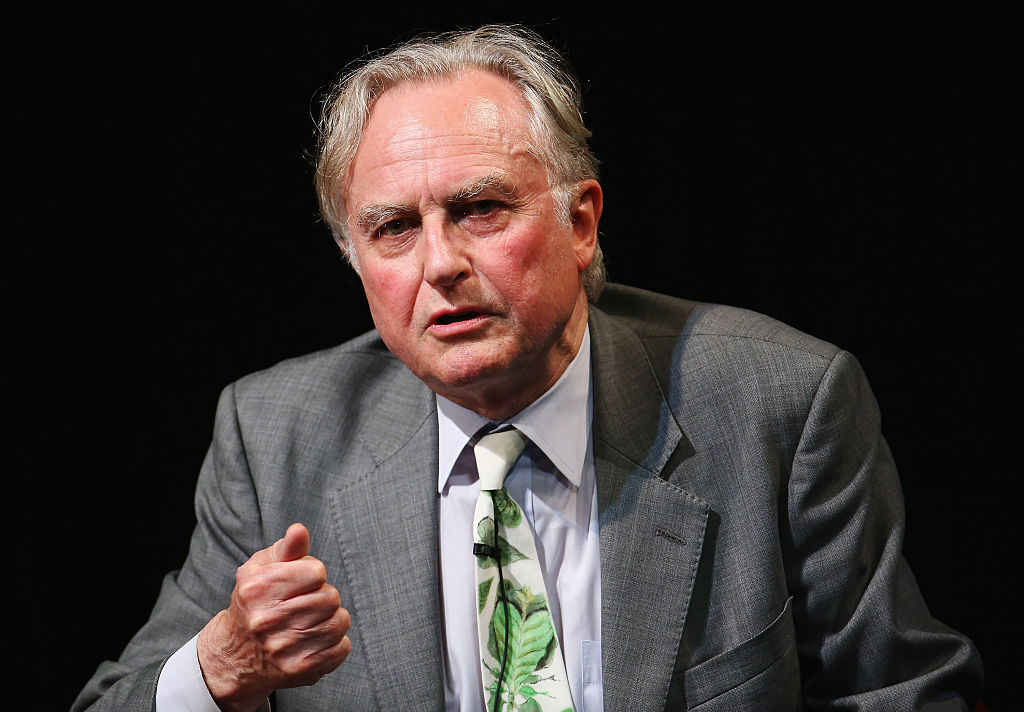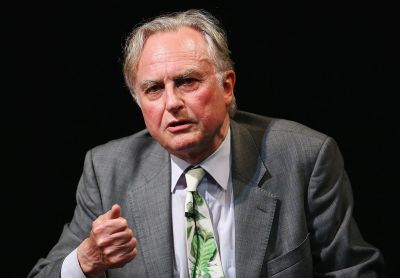Richard Dawkins, probably the world’s most prominent atheist, stirred up social media recently by signaling a change in his typically hostile stance against all religion. In a March 31 interview by Rachel Johnson on the British channel LBC, he revealed that he now identifies as a “cultural Christian.” He then explained what that means:
“I’m not a believer, but there is a distinction between being a believing Christian and a cultural Christian. … I love hymns and Christmas carols and I sort of feel at home in the Christian ethos, and I feel that we are a Christian country in that sense.”
But his declaration came as he opposed another religion whose growing visibility in the West disturbed Dawkins. It was, unsurprisingly, Islam. He was “slightly horrified” to see that Oxford Street in London was promoting Ramadan, the Islamic month for fasting, instead of Easter. “If I had to choose between Christianity and Islam, I’d choose Christianity every single time,” Dawkins added, only to claim that the former is “a fundamentally decent religion, in a way that I think Islam is not.”
In return, some public Muslim voices slammed Dawkins, an evolutionary biologist and author of the 2006 book The God Delusion, for Islamophobia. Among them was the well-known journalist Mehdi Hasan, who, in another interview on LBC, criticized Dawkins’ remarks as a case of “normalization” of “bigotry towards Islam.” Rizwaan Sabir, a scholar at Liverpool John Moores University, also made a similar point: “Turns out the anti-religion dude isn’t anti-religion. He’s just anti-Muslim.”
As a Muslim, I also found Dawkins’ comment on Islam all too biased and ill-informed. But I would still welcome his shy appreciation of religion—any religion, even if it is not mine—and see it as his first step toward recovering from his own delusions about the “God delusion.”
That first step may be too small for many believers—including genuine Christians, some of whom dismissed Dawkins’ mere “cultural” Christianity as a matter of principle. But for a staunch atheist like him, it actually is a significant step. For decades, both Dawkins and his fellow “New Atheists,” including the late Christopher Hitchens, kept telling us that “religion poisons everything.” Dawkins infamously defined religious faith as a “virus,” from which children should be protected and of which “the patients,” meaning believers, should be cured.
Beneath all these diatribes against religion lay the atheists’ own belief: that once traditional religion disappears, humanity would rejoice in rationality and flourish in harmony. It was the same old utopia that John Lennon popularized in his 1971 classic, “Imagine”: that once there is “no religion,” all people would be “living life in peace.”
The empirical reality has shown, however, that the disappearance of traditional religion often does not lead to an earthly heaven of science, reason, and deliberation. Humans just find other things to fight over: the glorious revolution that should be exported, the precious homeland that should be expanded, or the mighty empire that should be restored. Meanwhile, as the late Father Richard Neuhaus once aptly observed, the vacuum from traditional religion is filled by “ersatz religion,” a novelty that may come with its own passion and the zeal of its newfound converts.
In the 20th century in which Lennon wrote his song, such ersatz religions included fascism, communism, and many cases of murderous nationalism, which wreaked more havoc on humanity than any older violent religious episodes, such as crusades or jihads, had ever done. In this century, things have not gone that bad—at least so far—but it seems to be no accident that the increasingly secular West, especially America, is finding itself in the midst of fierce battles between new political faiths: a race-and-gender-obsessed “wokeism” on the left and a conspiracy-obsessed cultish populism on the right. Both are similarly eager for domination and conquest and similarly intolerant of heresy and dissent. This new “America without God,” as Shadi Hamid observes, is proving to be not a home of “rational politics, drained of faith’s inflaming passions.” Instead, those inflaming passions are channeled to politics, which is getting more intense, bitter, and fanatic.
Could Richard Dawkins be observing these facts as well and learning some lessons? Telegraph columnist Madeline Grant seems to think so. “Christianity’s decline has unleashed terrible new gods,” she recently wrote, which shows that “new Atheism was mistaken in its diagnosis of what would follow religion’s decline.” Dawkins, if he is really a man of “good old-fashioned scientific observation,” may finally be facing this reality. He may be joining, in other words, the ranks of more nuanced atheists in modern history who appreciated the social functions of religion without believing in it.
That would be a good step for Dawkins, as I noted, as well as other “new atheists.” But another step is much needed, both for new atheists and for many conservatives in the West who believe there is a simple dichotomy when it comes to liberty: that there is a good religion and a bad one. The former being Christianity, the latter being Islam.
This dichotomy is simple and misleading for two main reasons.
The first is that it is often based on a caricature of Islam created by a collection of the most disturbing elements of the contemporary Muslim world. This cherry-picked “Islam” is defined by the Taliban, ISIS, Hamas, or the Iranian regime, which represent only the darkest extremes in a much more diverse and often brighter part of the world. From Bosnia-Herzegovina to Indonesia, hundreds of millions of Muslims happily live in fairly free societies, where women wear what they choose, piety is at peace with pluralism, and minorities live without fear. Quite a few Muslims are in fact only “cultural Muslims”—just as Dawkins in his newfound “cultural Christianity”—and they too have a place in that infinitely complex world of Islam that is often wrongfully depicted as an austere monolith.
Secondly, there are indeed major problems in mainstream Islamic teachings today regarding human rights and liberties. They include severe punishments for apostasy and blasphemy, legal inequalities for women or non-Muslims, institutions of “morality police,” and religious justifications of political violence.
But, alas, Christianity had traditions of religious violence and coercion for more than a millennium—from torture chambers of the Inquisition to heretics burned at the stake, from sectarian violence to antisemitic pogroms. In fact, just a few centuries ago, Christendom was the bastion of religious oppression, while the Islamic world offered freedom. Hence when Sephardic Jews were expelled from Catholic Spain in the 15th century, many of them found haven in the Ottoman Empire, the very seat of the Islamic caliphate. Hence when Protestants and Catholics were slaughtering each other in the 16th century, French philosopher Jean Bodin was admiring “the great emperour of the Turks,” which “permitteth every man to live according to his conscience.”
Today, the scene is of course quite different: Minorities escape from the lands of Islam to the West, not the other way around, and it is the latter civilization where every person can live according to his conscience. But this is because latter-day Christianity has made its peace with the best political idea ever devised: liberalism. It was neither an easy nor a quick transformation. (It may not be even permanent, as there are Christians today—such as the Catholic integralists—who seriously want to turn the tide and go back to the good old days of medieval theocracy.) In the meantime, things got only worse in the Islamic world, where traditional pluralism was overshadowed by both new eruptions of religious fundamentalism, and ersatz religions of its own, such as xenophobic nationalism or “Arab socialism.”
In other words, it is not that Christianity is more “decent” than Islam, as Dawkins believes. He is just observing Christianity at its most liberal and relaxed stage, and while observing Islam at one of its most illiberal and anxious ones. But these tendencies within religions are not carved in stone. Freedoms are certainly “delayed” in the Middle East, as historian Timur Kuran rightly points out, but they are not necessarily denied.
Surely, it would be a major step for the Islamic civilization to finally liberalize. For many people, it may even be too major of a step to imagine that this is even possible. But thinking anew is what keeps the world going forward.
And if Dawkins can begin thinking anew about religion, all of us can.






Please note that we at The Dispatch hold ourselves, our work, and our commenters to a higher standard than other places on the internet. We welcome comments that foster genuine debate or discussion—including comments critical of us or our work—but responses that include ad hominem attacks on fellow Dispatch members or are intended to stoke fear and anger may be moderated.
With your membership, you only have the ability to comment on The Morning Dispatch articles. Consider upgrading to join the conversation everywhere.